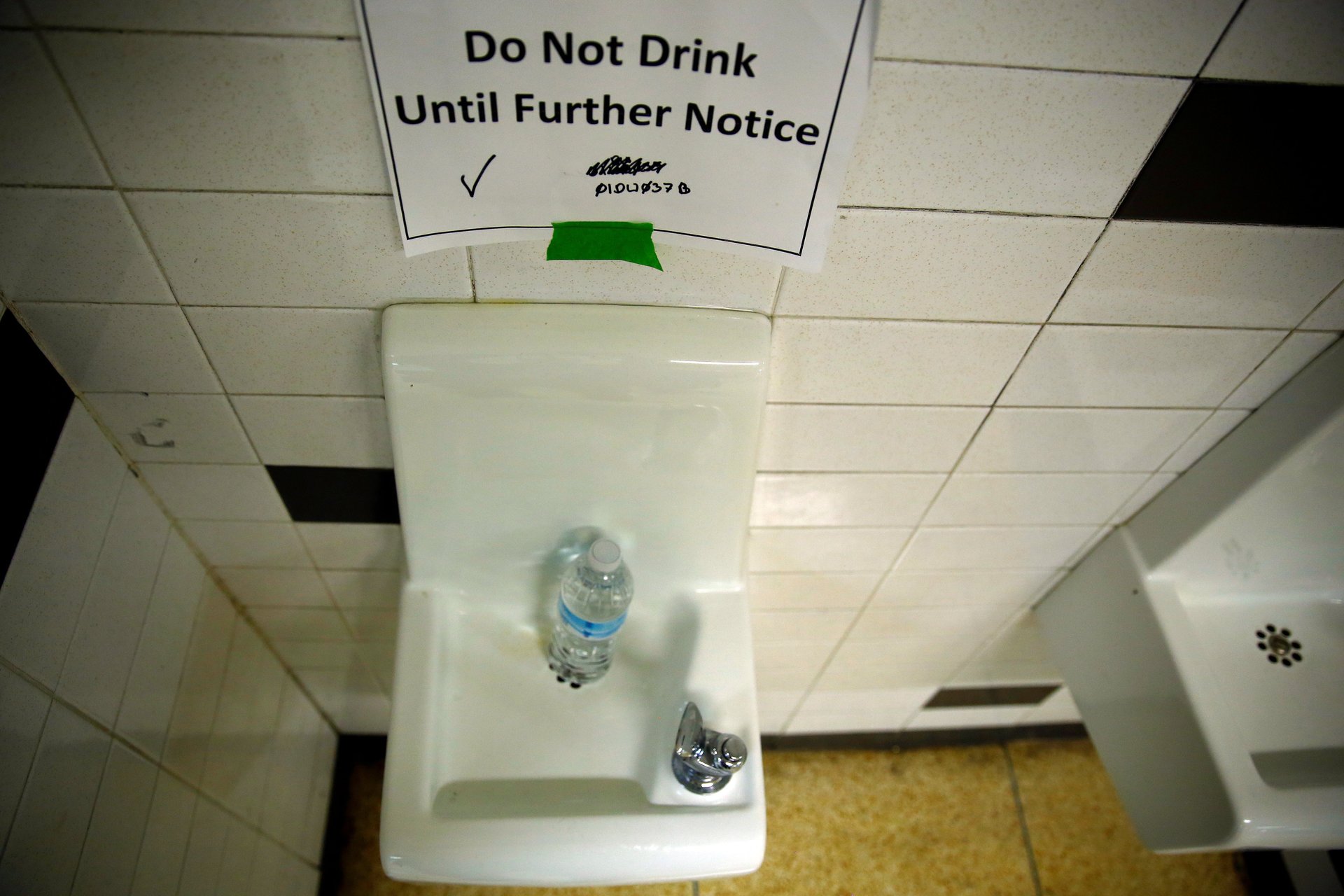Flint wants residents to pay for their poisoned water—or face losing their homes
Thousands of people in Flint, Michigan, still grappling with the effects of a lead-poisoned drinking water crisis could face tax liens and even foreclosure on their homes for unpaid water bills.


Thousands of people in Flint, Michigan, still grappling with the effects of a lead-poisoned drinking water crisis could face tax liens and even foreclosure on their homes for unpaid water bills.
More than 8,000 residents have received notices that past-due water bills—categorized as those left unpaid for six months or more—must be resolved to avoid a lien being placed on their property, the city said in a statement.
The billings cover two years and total more than $5 million in delinquent water and sewer charges, the city said.
The move comes less than two months after a federal judge approved a $97 million settlement from the state of Michigan to replace water lines in at least 18,000 households.
Residents have said they should not have to bear the cost for water they could not drink. ”We don’t pay for poison,” activist Melissa Mays told MLive.com in February. And for those who did pay their bills—some are asking for their money back. “We deserve a refund like any normal consumer—if it’s a faulty product you refund the water paid,” Mays said.
Virginia Tech researchers who took samples of the water in nearly 300 homes in 2015 found some contained lead levels high enough to meet the EPA’s definition of “toxic waste.” Today, the water in Flint remains unsafe to drink without a filter, according to results released in April.
The liens threatened by the city, if implemented, represent the first step in making a claim on an individual’s property. Liens kick off a legal process that could ultimately result in people losing their homes.
Flint residents face some of the highest water bills in the US. To bring some relief, Gov. Rick Snyder approved a $30 million plan last year to reimburse residents for a portion of payments made since April 2014 on water used for drinking, bathing and cooking.
“Flint residents should not have to pay for water they cannot drink,” he said then. The subsidies ended in February, sparking local protests.
Now, officials say they are simply following the routine procedure for past-due billing. Once payments are missed on water or sewer accounts for more than six months, an ordinance requires the treasurer to transfer the lien to a homeowner’s property tax bill.
“We must follow the law,” mayor Karen Weaver said. “I understand the concerns that have been raised and I am working to see if any changes or something can be done to help those affected by this, especially given the extraordinary circumstances we have endured due to the water crisis.”
Residents have have until May 19 to make a payment and avoid a lien, the city said, and until next February to pay their balance in full.